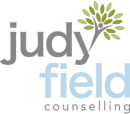4th July 2022
During my time as a bereavement counsellor in Harrogate and online, many people have come to me after the death of a loved one believing that they are suffering from PTSD (Post Traumatic Stress Disorder). In some cases, this is true, especially if they have found the person who has died, or if the death was unexpected and came out of nowhere. Most of the time, however, people experience grief, not PTSD. Often, clients tend to believe these two phenomena are one and the same thing, but in reality they are two rather different things.
In this blog post, we will walk through the difference between PTSD and grief.
PTSD
PTSD involves a specific set of symptoms and can occur after a wide range of events, such as witnessing violence or receiving death threats, for example - not just after someone dying. It is often characterised by experiencing nightmares, intrusive memories, or feeling like you are reliving the event. It is, unlike grief, considered a mental disorder in the DSM-5 manual, with other common symptoms including irritable behaviour, angry outbursts, and hypervigilance. These problems are sometimes seen with those who are grieving, but occur far more regularly with PTSD.
Grief
While PTSD is a disorder with fear and a sense of hopelessness as its governing symptoms, grief tends to be a more complex process that differs from person to person. Hopelessness may be a feature, but generally bereavement causes a sense of longing and denial, among many other emotions, such as frustration, guilt, sadness, anger, confusion, or numbness.
As a result, the treatment for grief is different to PTSD, which can be quite effectively addressed with hypnotherapy and EMDR (Eye Movement Desensitisation and Reprocessing). Grief, on the other hand, is something we work through at our own time and in different ways. Focusing on that sense of loss takes time, nor is it linear. The purpose of bereavement counselling is to recontextualise your loss over time and eventually adapt to the absence of a loved one, whereas PTSD support is more about breaking patterns in the mind.
If you are finding it hard to cope with the trauma of someone dying, or a loss of some other kind, my practice gives you a safe, calm space to explore the emotions involved and feel supported. To learn more about my bereavement counselling in Harrogate and online, don’t hesitate to give me a call.

